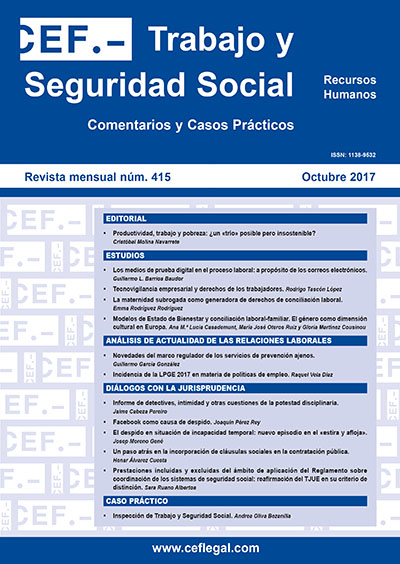Enterprise corporate tecno-surveillance and workers' rights (attempt to construct a conceptual rule in Spanish Labor Law)
DOI:
https://doi.org/10.51302/rtss.2017.1778Keywords:
workers monitoring, workers control, new technologiesAbstract
The incredible technological advances have found one of its most colorful (and legally delicate) manifestations in the resized capacity of control on the part of the employer with respect to the work performance developed by the workers. The article 20.3 ET, called to fix the limits of action in the matter, hardly if it refers diffusely to human dignity, without the legislator proceeded to update a pre-IT precept.
In this context, it has been the jurisprudence (both the Constitutional Court and the Supreme Court) to take on a quasilegislative work and to proceed to decant the limits of the power of business control when they collide with non –specific fundamental rights (to privacy– art 18.1 EC –to the secrecy of communications– art. 18.3 EC –or to self-determination of the workers– art. 18.4 EC).
From the analysis of the doctrines used by the high courts of the country in pronouncements, classic and recent (proportionality of the business measure, expectation of worker privacy and information of personal data), to construct a rule of synthesis that allows to outline a little more and better the limits of the power of business control from the use of new technologies.



















